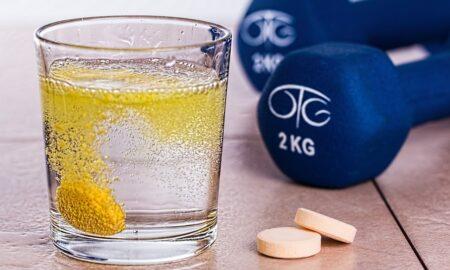I teach at a local university and often give seminars to athletes, coaches and educators, so I’m familiar with the popular notion among the so-called experts that commercial energy drinks, like Red Bull and Monster, are very bad for you. Even the folks at WebMD can’t seem to find experts who actually read the scientific literature, but, hey, I guess they don’t want to confuse a good story with facts, right? Here are some inane quotes from an online article, “What’s the Buzz About Energy Drinks?” by Kathleen Zelman, MPH.
• “Most of the energy drinks contain high-tech-sounding ingredients that are not controlled substances, of no value, and potentially harmful” in large amounts, [says] Cynthia Sass, MPH, M.A., R.D., a board-certified specialist in sports dietetics.
• “Energy drinks contain multiple stimulants that, when combined, can be dangerous and have a very powerful effect on the body.”
• “Don’t be misled into thinking energy drinks will power up your workouts.”
After reading that stuff, you’d think the easy way to check for accuracy would be to see if actual studies have been done on energy drinks. And of course, the answer is yes. Perhaps WebMD should do more research.
A recent study determined the effects of Red Bull energy drink on Win-gate cycle performance and muscle endurance. Healthy young men and women participated in a crossover study in which they were given Red Bull or an isoenergetic, isovolumetric, noncaffeinated placebo. Muscle endurance on the bench press was assessed by the maximum number of repetitions over three sets, separated by one-minute rest intervals, at an intensity corresponding to 70 percent of baseline one-repetition maximum. Three 30-second Wingate cycling tests with two minutes of recovery between tests were used to assess peak and average power output. Did the stuff kill ’em? Did it amp ’em up so much that they had to visit the emergency room? Please.
The truth is that energy drinks work. The researchers found that drinking Red Bull significantly increased total bench-press repetitions over three sets but had no effect on anaerobic peak or average power during repeated Wingate cycling tests.1 A better bench press—that’s worth drinking a can.
The effects of Red Bull were examined over three studies in a total of 36 volunteers. The scientists measured a ton of stuff, including psychomotor performance (reaction time, concentration, memory), subjective alertness and physical endurance. When compared with control drinks, Red Bull significantly improved aerobic endurance (maintaining 65 to 75 percent max of heart rate) and anaerobic performance (maintaining max speed) on cycle ergometers. Significant improvements in mental performance included choice reaction time, concentration (number cancellation) and memory (immediate recall), which reflected increased subjective alertness.2 Hmm…you mean nobody died?
Another study showed that the mixture of three key ingredients of Red Bull—caffeine, taurine and glucuronolactone—has “positive effects upon human mental performance and mood.”3 It also reduces sleepiness and sleep-related driving incidents under conditions of afternoon monotonous driving following sleep restriction the night before.4 Last but not least, it improves attention and verbal reasoning, in comparison with sugar-free and sugar-containing drinks.5
Hey, WebMD, read more than the abstracts. Also, don’t confuse the use of product or ingredient with the abuse of it. I’d surmise that drinking 20 Red Bulls (equal to 1,600 milligrams of caffeine, or 16 cups of coffee) is probably not the best thing for you. On the other hand, drinking a teaspoon of coffee or Red Bull has no effect. The truth lies somewhere in between, the science clearly shows that the moderate consumption of energy drinks like Red Bull is indeed a safe and effective ergogenic aid. IM
Editor’s note: You can listen to Dr. Jose Antonio and Carla Sanchez on their radio show Performance Nutrition, Web and podcast at www.PerformanceNutritionShow.com. Dr. Antonio is the CEO of the International Society of
Sports Nutrition—www.TheISSN.org. His other Web sites include www.SupplementCoach.com, www.Javafit.com,
www.PerformanceNutritionShow.com and www.JoseAntonioPhD.com.
References
1 Forbes, S.C., et al. (2007). Effect of Red Bull energy drink on repeated Wingate cycle performance and bench press muscle endurance. Int J Sport Nutr Exerc Metab. 17:433-44.
2 Alford, C., et al. (2001). The effects of Red Bull energy drink on human performance and mood. Amino Acids. 21:139-50.
3 Seidl, R., et al. (2000). A taurine and caffeine-containing drink stimulates cognitive performance and well-being. Amino Acids. 19:635-42.
4 Reyner, L.A., et al. (2002). Efficacy of a “functional energy drink” in counteracting driver sleepiness. Physiol Behav. 75:331-5.
5 Warburton, D.M., et al. (2001). An evaluation of a caffeinated taurine drink on mood, memory and information processing in healthy volunteers without caffeine abstinence. Psychopharmacology. 158:322-8.




















You must be logged in to post a comment Login